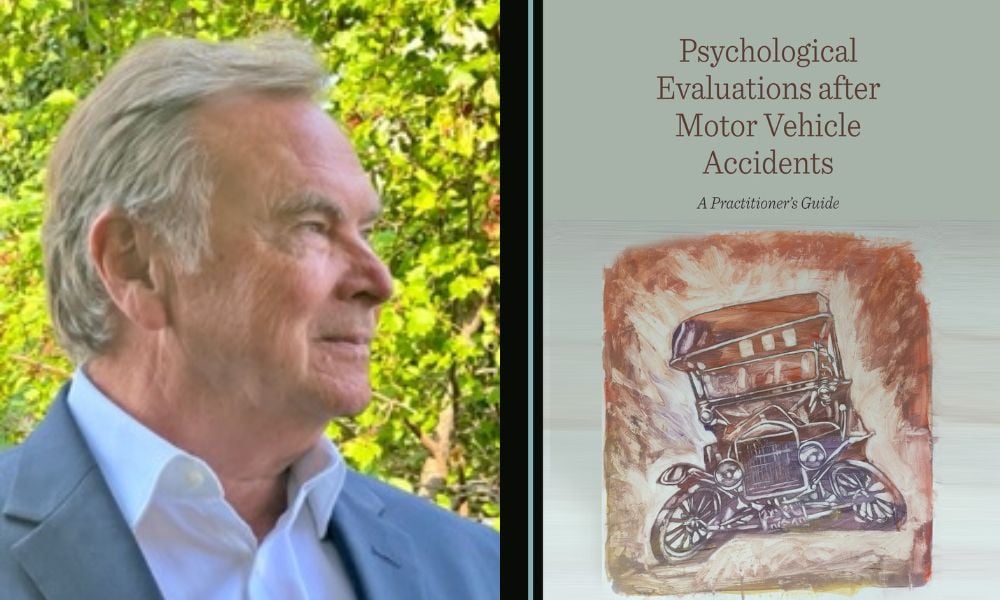New book reviews the material and psychological elements of car accident trauma

One percent of the population in the United States will be in a motor vehicle accident this year.
That is the sobering statistic that opens the book “Psychological Evaluations after Motor Vehicle Accidents A Practitioner’s Guide.”
In Canada, 101,572 people were injured in car accidents in 2020, according to the latest stats from Transport Canada. That number, likely depressed by COVID lockdowns, was 28 percent down from 2019. Of those injuries, 7,868 were serious, and there were 1,745 fatalities.
For lawyers representing the multitudes injured in car accidents, the new book by Thomas Dalby, Michael Maclean, and Marc Nesca is an effort to use the science of psychology to answer the relevant legal questions involved in pursuing a personal injury claim arising from a car accident.
Read more: How can lawyers help clients with what to do after a car accident?
Dr. Thomas Dalby is a forensic psychologist, adjunct professor at the University of Calgary, and member of the Hotchkiss Brain Institute. His book systematically reviews the steps to prepare psychological assessments for people injured in car accidents. It examines common mental disorders, outlines causation mechanisms, and intends to help lawyers and insurers determine fair compensation for these injuries.
When hired to consult on a personal injury matter, Dalby’s job is to answer two questions. Does the injured person have a defined mental disorder? And, if so, what caused it?
According to Dalby, car crash victims can suffer from various anxiety disorders and types of depression. He says that sleep disorders are often overlooked but occur at a high rate among this population.
“That’s one thing that a lot of people ignore. But if you address that, get them to the sleep clinic, if they start having better sleep – and insomnia disorder is a mental disorder – then other things can improve. When a person has multiple mental disorders, they all interact.”
“It’s not simple treating mental disorders. You have to consider the holistic approach to a person’s status after a motor vehicle accident.”
Forensic psychologists administer various tests, including “validity indicators,” says Dalby, to spot when a person is trying to present themselves as having a condition they do not have.
“People who do mostly defence work think that this number is very high,” he says. “But we think that’s a very jaded view. A small percentage will do this. But most people will just be straight up with you.”
The second task involves connecting the mental disorder to the accident. This process consists in acknowledging that most people will have a mental disorder sometime in their life, and a person who gets into a car accident may already have one, says Dalby. Forensic psychologists will examine the accident’s impact, whether it worsens their pre-existing condition or maintains it longer than it would have lasted otherwise.
In addition to evaluating the potential causal connection between a car accident and an alleged mental disorder, forensic psychologists will advise on how to improve the condition and how it can be treated and improved.
“Most of these never end up in court,” he says. “They’re resolved through discussion between counsel on both sides. But we’re happy to go to court too.”
Dalby has conducted thousands of psychological evaluations over the last four decades. In that time, he has seen a significant change in how much people understand post-traumatic stress disorder and notes there are also now more resources to treat it.
“Post-traumatic stress often is correlated with depression too,” he says. “So, it gets to be a very, very tough disorder to treat. Usually, it only happens in fairly serious car accidents.
“The general public, I think, has more understanding of that than they used to have.”










